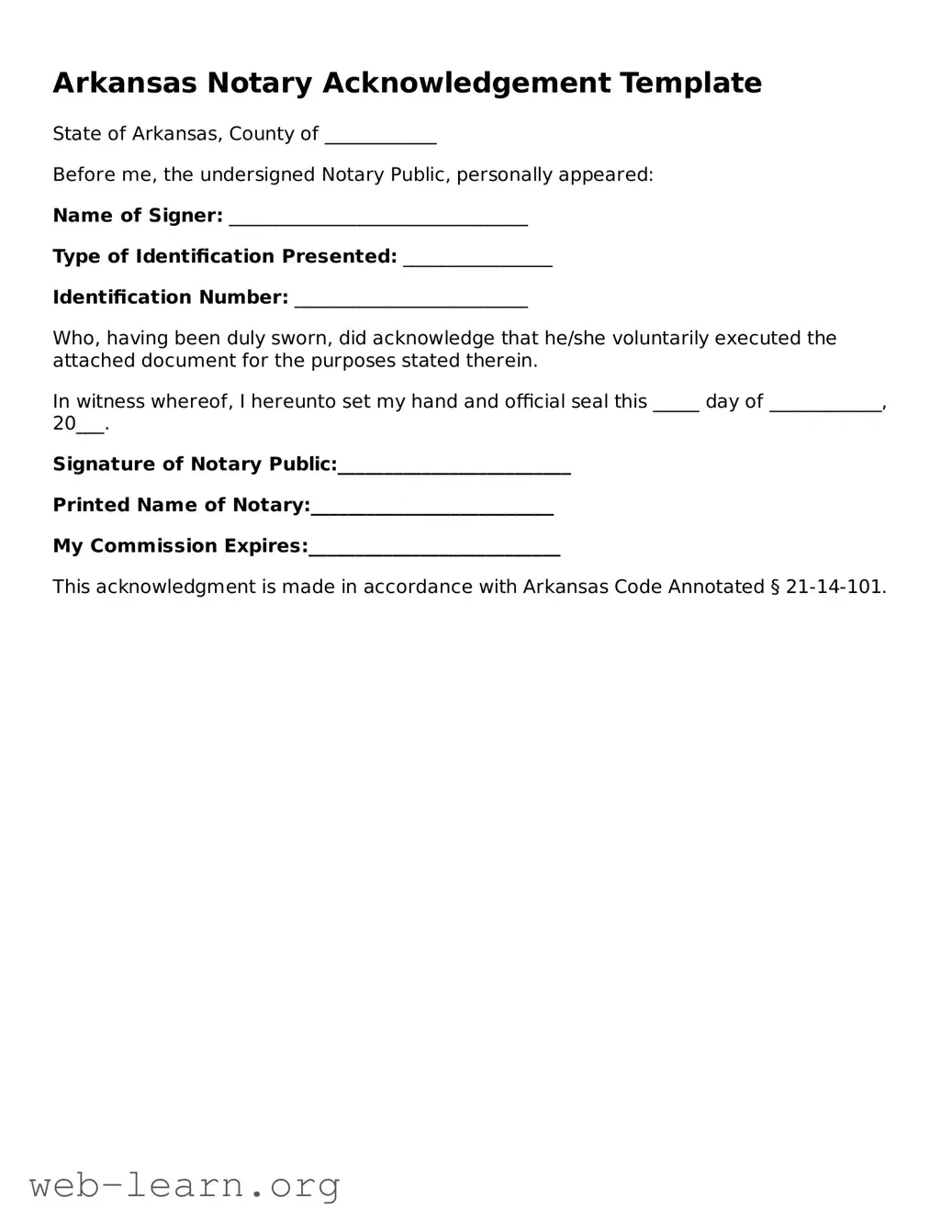Attorney-Approved Notary Acknowledgement Document for the State of Arkansas
The Arkansas Notary Acknowledgement form is a legal document used to verify the identity of a signer and confirm their willingness to enter into an agreement. This form ensures that the signature is authentic and that the signer understands the contents of the document. Proper use of this form is essential for maintaining the integrity of notarized transactions in Arkansas.
